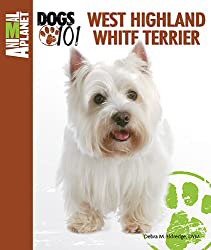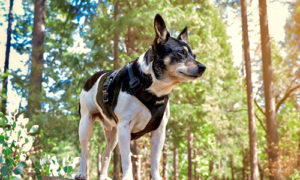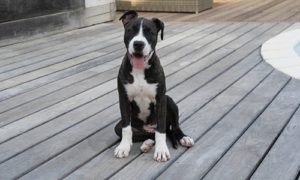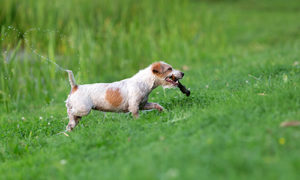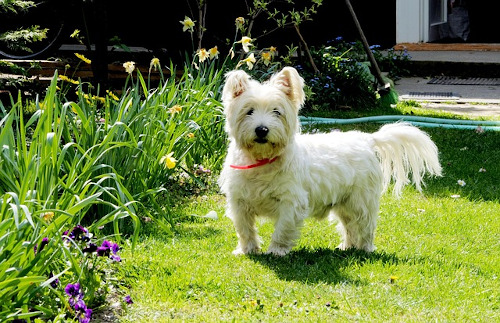
The West Highland White Terrier, Cairn, Dandie Dinmont, and Scottish Terriers trace their ancestry back to hardy working Terriers of Scotland. In the nineteenth century, enthusiasts separated these regional types into individual breeds, but this was a lengthy process. The Westie was selected for light color to be easily spotted in the field and not mistaken for the quarry. They were formerly known as the Poltalloch or Roseneath Terrier, the breed’s name when the AKC first recognized it. The West Highland White Terrier officially acquired its current name in 1909.
West Highland White Terrier Breed Standard
The Westie is a small, compact, well-balanced, short-legged terrier. Game, sporty, and short coupled, the Westie has a muscular neck; a flat, level back; short, sturdy legs; and firm, round feet. The short tail resembles a carrot, set high and carried up but not curled over the back.
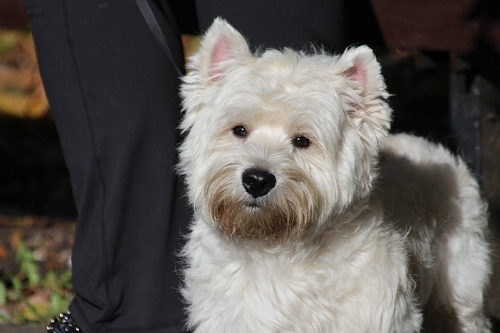
The head is broad and slightly domed, and the coat on the head is round. The blunt muzzle is slightly shorter than the skull and subtly tapers to a large, black nose.
The breed’s landmark piercing, and inquisitive expression, is produced by dark, wide-set, medium-sized, almond-shaped eyes, accentuated by heavy eyebrows and small, wide-set, erect ears.
Breed Facts
Activity level: This dog is a hardy working terrier tolerant of the cold, thanks to its protective coat. Westies must have a daily activity or may resort to excessive barking or digging. Westies have a strong prey drive and must be exercised on a lead or in a fenced yard. They do well in sports such as agility, earth dog, obedience, rally, and flyball.
- POPULARITY: Popular
- FAMILY: Terrier
- AREA OF ORIGIN: Scotland
- DATE OF ORIGIN: 1800s
- ORIGINAL FUNCTION: Fox, badger, and vermin hunting
- TODAY’S FUNCTION: Earthdog trials
- OTHER NAME: Poltalloch Terrier
West Highland White Terrier Temperament
The Westie is a typical terrier. Self-confident, spunky, and determined. The breed’s lighthearted, happy nature makes for an enjoyable companion. Devoted to their owners, Westies are generally sociable with others and usually get along well with dogs and cats. They can become bossy if their owners are too lax. They respond best to reward-based training but can be stubborn.
Grooming
Daily brushing, along with professional grooming every four to six weeks, is recommended. Also, do not bathe a Westie more than once a month.
- Coat: A hard, straight outer layer that is 2 inches long and shorter on the neck and shoulders. The undercoat is plentiful and soft. The furnishings are somewhat longer and smoother.
- Color: White
Health
- MAJOR CONCERNS: globoid cell leukodystrophy, Legg—Perthes, CMO, skin disease
- MINOR CONCERNS: copper toxicosis, cataract, patellar luxation, KCS
- OCCASIONALLY SEEN: deafness
- SUGGESTED TESTS: hip, knee, eye
- LIFE SPAN: 12—14 years
- WEIGHT: male: 15—21 pounds
- HEIGHT: male: 11 inches; female: 10 inches
West Highland White Terrier Breeders and Sale Advice
Get in contact with team Westie, which is the parent club’s educational resource network. There, you will find advice, information, and references. Also, research the breed and confirm that it will fit your lifestyle; never buy on impulse. Contact local dog clubs and regional Westie clubs, and attend dog shows to learn more about the breed.
- Parent club: West Highland White Terrier Club of America (www.westieclubamerica.com); founded in 1909
- Regional clubs: You can find almost two dozen US clubs on the parent club’s page under “The WHWTCA.”
- Rescue: You can find National Westie Rescue on the WHWTCA’s website under “Rescue.”
West Highland White Terrier Price

These terriers come in a variety of price ranges. Therefore, which one you get will hang on your budget as well as your needs. For instance, a West Highland White Terrier for sale that will be a pet with limited registration is a lot cheaper than a Westie that is fully registered and comes with breeding rights.
You can only raise West Highland White Terrier puppies with limited registration as pets; you cannot breed them. Therefore, the price you pay for these puppies is going to be cheaper. The price is an excellent deal for those potential Westie owners that are not professional breeders. Today, you can find pet-only Westies between the price range of $600-$950.
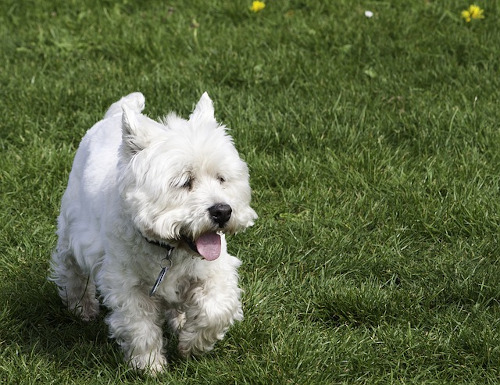
However, for Westies with full registration, you will pay a lot more, simply because you have the right to breed them. The price range varies because you have to consider the type of breeder, ancestry, and pedigree.
Purchasing a Westie from an unknown breeder is going to cost anywhere from $1200 to $1500. They mostly came from a typical pedigree and were raised as pets.
On the other hand, buying a West Highland White Terrier from a well-known famous breeder will be a little more expensive. The price can also reflect the size and location of the breeder. The costs can range between $1600 to $5000 and sometimes higher for show quality puppies.

